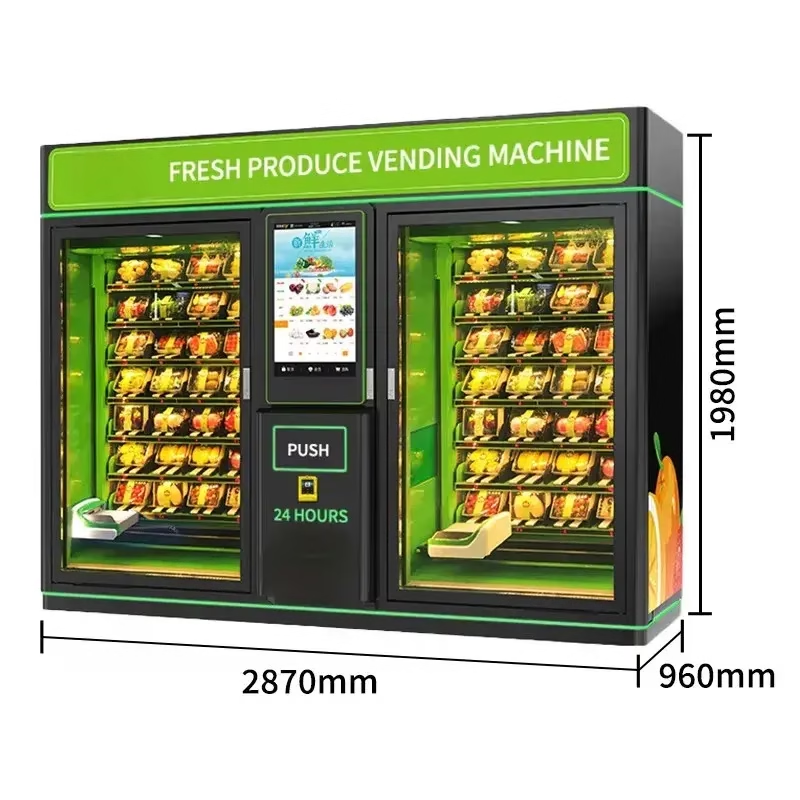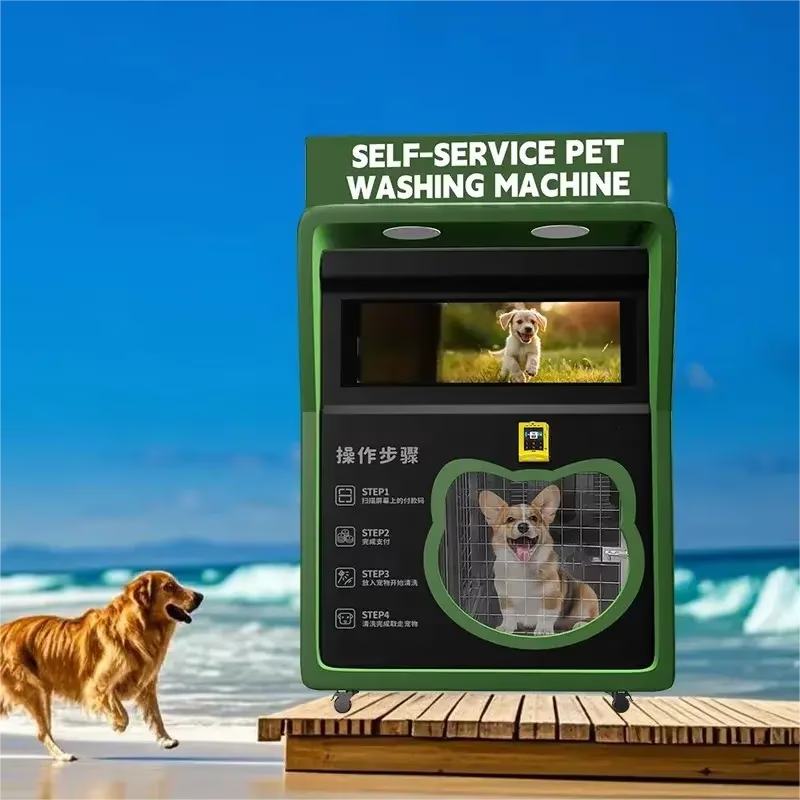Cashless vending machines use digital payment systems like credit cards, mobile wallets, and contactless technology to eliminate the need for cash transactions. These smart machines offer faster, safer, and more convenient purchasing experiences while providing better sales tracking for operators. Modern cashless vending systems integrate multiple payment methods including NFC, QR codes, and mobile apps to meet growing consumer demand for digital transactions. With the global cashless vending market reaching $54.3 billion in recent years and growing at 12% annually, these innovative machines are transforming how we buy snacks, drinks, and everyday items. Are you ready to discover how cashless vending machines are changing the game?

Quick Reference: Cashless Vending Machine Essentials
| Feature | Details | Benefits |
|---|---|---|
| Payment Methods | Credit/Debit Cards, Mobile Wallets, NFC, QR Codes | Faster transactions, wider customer reach |
| Market Growth | 12% CAGR through 2033 | Growing industry opportunity |
| Customer Preference | 69.5% still use cash, but cashless growing rapidly | Increasing digital adoption |
| Average Transaction | 23% higher than cash purchases | Better revenue per sale |
| Setup Time | 2-4 hours with professional installation | Quick implementation |
| ROI Period | 6-12 months typical payback | Strong investment returns |

Table of Contents
How Do Cashless Vending Machines Actually Work?
Cashless vending machines process digital payments through integrated card readers and wireless connectivity. When customers tap their card or phone, the payment system instantly verifies the transaction and dispenses the selected product. The process typically takes 15-30 seconds from payment to product delivery.
These smart machines connect to secure payment networks through cellular or WiFi connections. Additionally, they store transaction data locally and sync with cloud-based management systems. Most importantly, modern cashless systems accept multiple payment types simultaneously, giving customers maximum flexibility.
Here’s the simple step-by-step process:
- Customer selects their desired product
- Payment system activates showing available options
- Customer presents their payment method (card, phone, or app)
- System processes the transaction securely
- Product dispenses automatically after confirmation
- Receipt options available via email or SMS
What Payment Methods Do Cashless Vending Machines Accept?
Modern cashless vending machines typically accept credit cards, debit cards, mobile wallets like Apple Pay and Google Pay, contactless cards, and QR code payments. Many also support campus cards, employee badges, and branded mobile apps for specific locations.
The most popular payment methods include:
- Contactless Cards: Tap-and-go convenience with RFID technology
- Mobile Wallets: Apple Pay, Google Pay, Samsung Pay integration
- Traditional Cards: Magnetic stripe and chip card support
- QR Codes: Smartphone scanning for instant payments
- Campus/Employee Cards: Institutional payment systems
- Mobile Apps: Custom branded payment solutions
Furthermore, advanced machines often support multiple payment methods simultaneously. This flexibility ensures that virtually every customer can make a purchase regardless of their preferred payment method.
Why Are Cashless Vending Machines More Profitable?
Cashless vending machines generate approximately 23% higher revenue per transaction compared to cash-only machines because customers spend more when using cards or mobile payments. They also reduce operational costs by eliminating cash collection, counting, and security concerns.
The profitability advantages include:
Higher Transaction Values: Digital payments remove spending limits imposed by available cash. Consequently, customers often purchase additional items or premium products.
Reduced Operating Costs: Moreover, cashless systems eliminate:
- Weekly cash collection visits
- Change replenishment needs
- Cash counting and banking time
- Theft and vandalism risks
Better Inventory Management: Additionally, real-time sales data helps optimize product selection and restocking schedules.
Extended Operating Hours: Furthermore, machines remain functional 24/7 without cash-related shutdowns.

Which Industries Benefit Most from Cashless Vending Machines?
Offices, schools, hospitals, and transportation hubs see the greatest benefits from cashless vending machines due to high foot traffic and customer preference for quick, contactless transactions. These environments often have captive audiences who value convenience and speed.
Top Performing Locations:
Corporate Offices: Employees prefer quick purchases without handling cash during short breaks. Similarly, many offices have moved toward cashless environments.
Educational Institutions: Students primarily use cards and mobile payments. Additionally, campus card integration provides seamless purchasing.
Healthcare Facilities: Hygiene concerns make contactless payments essential. Moreover, staff and visitors appreciate touch-free transactions.
Transportation Centers: Travelers often carry cards rather than local currency. Furthermore, quick transactions reduce wait times.
Gyms and Fitness Centers: Members value contactless purchases after workouts. Plus, integration with membership systems is possible.
How Much Do Cashless Vending Machine Upgrades Cost?
Converting existing vending machines to cashless typically costs $800-$2,500 per machine, while new cashless vending machines range from $3,000-$8,000 depending on features and technology. Most operators recover their investment within 6-12 months through increased sales.
Cost Breakdown:
| Component | Price Range | Features |
|---|---|---|
| Basic Card Reader | $800-$1,200 | Credit/debit card acceptance |
| Advanced Payment System | $1,500-$2,500 | Multiple payment methods, connectivity |
| Installation & Setup | $200-$500 | Professional installation service |
| Monthly Service Fees | $15-$35/month | Payment processing, support |
| Transaction Fees | 2.5-4% per sale | Payment processing costs |
However, the return on investment often justifies these costs quickly. Most operators report payback periods of 6-12 months due to increased sales volume and transaction values.
What Are the Main Security Features of Cashless Vending Machines?
Cashless vending machines use encrypted payment processing, PCI compliance standards, and secure data transmission to protect customer information and prevent fraud. These security measures match or exceed those used by traditional retail payment systems.
Key Security Technologies:
Encryption: All payment data transmits using advanced encryption protocols. Additionally, sensitive information never stores locally on machines.
PCI Compliance: Payment systems meet strict industry security standards. Furthermore, regular security updates maintain protection levels.
Fraud Prevention: Built-in algorithms detect suspicious transaction patterns. Moreover, real-time monitoring prevents unauthorized access.
Data Protection: Customer payment information never stores on the vending machine. Instead, secure tokens handle transaction processing.
Physical Security: Tamper-resistant hardware protects payment components. Plus, alert systems notify operators of any interference attempts.
How Do You Choose the Right Cashless Vending Machine System?
Select cashless vending machine systems based on your location’s customer demographics, desired payment methods, budget, and integration needs with existing business systems. Consider factors like transaction volume, technical support, and scalability for future expansion.
Essential Evaluation Criteria:
Payment Method Support: Choose systems that accept your customers’ preferred payment types. For instance, college campuses need campus card integration.
Connectivity Options: Ensure reliable internet connectivity through WiFi, cellular, or ethernet. Additionally, backup connectivity prevents downtime.
Integration Capabilities: Look for systems that work with your existing business software. Moreover, inventory management integration streamlines operations.
Support Services: Select providers offering comprehensive technical support and training. Furthermore, 24/7 support minimizes operational disruptions.
Scalability: Choose systems that can grow with your business. Additionally, consider multi-location management capabilities.

Frequently Asked Questions About Cashless Vending Machines
Do cashless vending machines accept Apple Pay and Google Pay?
Yes, most modern cashless vending machines accept Apple Pay, Google Pay, and other mobile wallet payments through NFC (Near Field Communication) technology. Simply hold your smartphone near the payment reader to complete transactions.
Can cashless vending machines still accept cash?
Many cashless vending machines are hybrid systems that accept both cash and digital payments, giving customers maximum flexibility. However, some operators choose fully cashless systems to eliminate cash handling entirely.
How reliable are cashless vending machine payment systems?
Cashless vending machine payment systems achieve 99%+ uptime reliability when properly maintained and connected to stable internet. Backup connectivity options and offline transaction capabilities ensure continuous operation.
What happens if the internet connection fails?
Most cashless vending machines store transaction data locally and can process some payments offline using cached authorization. When connectivity returns, all transactions sync automatically with payment networks.
Are cashless vending machines more expensive to operate?
While cashless systems have processing fees (2.5-4% per transaction), they often cost less overall due to eliminated cash collection, reduced theft, and higher sales volumes. Most operators save money while increasing revenue.
How long does installation of cashless payment systems take?
Professional installation of cashless payment systems typically takes 2-4 hours per machine. This includes hardware installation, software configuration, payment system testing, and operator training.
Do customers prefer cashless vending machines?
Consumer preference for cashless vending is growing rapidly, with mobile wallet usage increasing at 12.65% annually. Younger demographics especially prefer contactless payment options for convenience and hygiene reasons.
Can cashless vending machines track customer preferences?
Yes, cashless vending machines collect valuable data on purchasing patterns, popular products, and peak usage times without storing personal customer information. This data helps optimize inventory and improve profitability.
Ready to upgrade your vending operation with cashless payment solutions? Contact OboVending at obotechgroup.com for expert consultation on implementing the perfect cashless vending system for your business needs.
Get Our Full Vending Machine Catalog
Fill out the form to instantly access our product catalog and see all models, specs, and pricing options.

 Privacy respected. No spam. Ever.
Privacy respected. No spam. Ever.